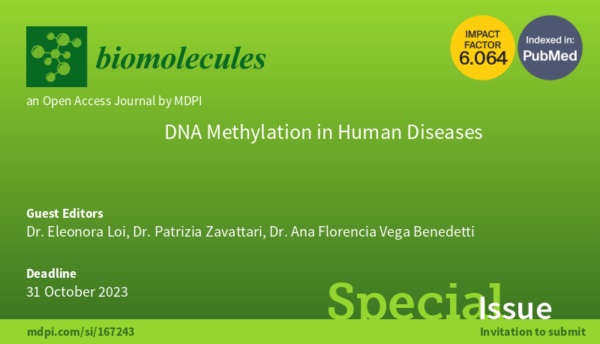DNA Methylation in Human Diseases
DNA methylation plays a crucial role in many biological processes, contributing to gene expression regulation. A growing body of evidence underlines that DNA methylation alterations are associated with several human diseases, including cancer, imprinting disorders, metabolic disorders, infectious diseases, autoimmune diseases, neurological disorders and others. Defects in the machinery that regulates the establishment and the maintenance of DNA methylation pattern can give rise to gene expression changes, leading to the onset of human diseases and influence their clinical course.
Therefore, DNA methylation changes can be used as biomarkers at all stages of clinical disease management, from risk assessment, early diagnosis, prognosis, treatment choice and relapse monitoring. Furthermore, given the reversible nature of epigenetic modifications, there is an increasing interest in developing methods to reverse DNA methylation aberrations.
This Special Issue welcomes contributions focused on the role of DNA methylation in human diseases, including, but not limited to, studies aimed at elucidating the mechanisms leading to DNA methylation aberrations, understanding the functional impact of DNA methylation changes, the discovery of potential DNA methylation biomarkers and the development of new therapies based on DNA methylation reprogramming.
Dr. Eleonora Loi
Dr. Patrizia Zavattari
Dr. Ana Florencia Vega Benedetti
Guest Editors


